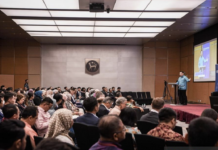KUALA LUMPUR, Dec 30 — Malaysia’s growth rate is expected to rebound to 6.6 per cent next year, following the recovery in the country’s domestic and foreign consumption, says Asia Pacific Investment Bank’s (APIB) chief executive officer, Chris Wang.
However, he noted that the forecast hinges on quelling the spread of the COVID-19 virus, political stability and increased demand for the country’s exports.
“Due to rising domestic demand and fuel prices, the national inflation rate is predicted to rise marginally to 1.1 per cent, and there will be an unequal pace of recovery and development in the different domestic sectors,” he said in a statement today.
Wang said the manufacturing and transport sectors will see growing demands, adding that the automobile sector is expected to recover while the retail sector will still face challenges in the short term.
“The Information Technology (IT) industry will remain as the largest beneficiary as new technologies are being adopted by various industries, with new business models such as big data, artificial intelligence (AI), and fifth-generation (5G).
“Tourism and airlines industries will face tough challenges in the short- to medium term due to its reliance on domestic spending, making the recovery to pre-COVID-19 levels by 2023 extremely challenging,” he added.
He also noted that the energy sector will see a short term decline in terms of prices and revenue, while pressure will remain on sales of residential properties.
As such, Wang said investors are advised against putting their entire capital into a single sector portfolio, and to spread it out instead in a balanced manner, adhering to the concept of medium and long-term investments to counter the short-term negative impact of market fluctuations.
He said Malaysians should look out for investment opportunities in Asian countries which enjoy speedy recovery like China, Japan, Korea and others.
“Due to the influence from the Regional Comprehensive Economic Partnership (RCEP) agreement, investors can consider increasing their investment in the regional manufacturing industrial chain, especially those related and affected by the United States-China trade war.
“By taking advantage of the situation, we can seek to boost Malaysia’s status as a transshipment hub and increase our export revenue,” added Wang.



















